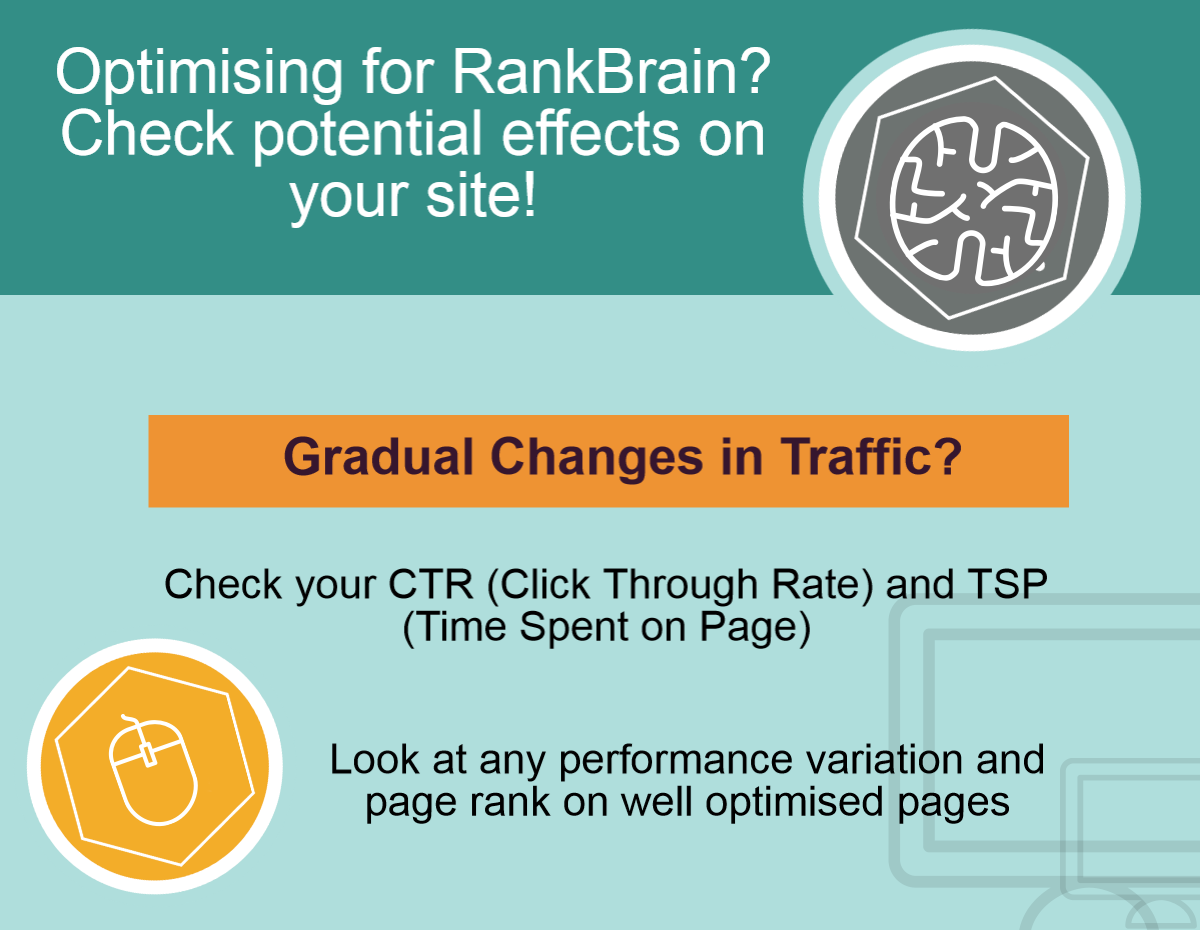RankBrain and Search Optimisation: Is It Possible?

By Kim Ekin, SEO Analyst
RankBrain is Google’s machine learning/ natural language processing technology, an extension of its Hummingbird algorithm. Confirmed as being in the top 3 highest ranking factors in Googles 200+ ranking signals (the other 2 being links and content), it was introduced in late 2015 and rolled out over the next few months. Originally, it was used in 15% of all searches. In particular, it’s useful for long tail keyword phrases that have never been searched before as it ‘learns’ to group these to pages that also match these search queries.
Google tells us that approximately 15% of searches have never been searched for before which may not sound like a lot, but when you consider that Google processes approx. 1 billion searches per day, that’s 450 million every day that RankBrain is involved in. This was in 2015, and there are signs that it influences much more now.
Since January 2017 there have been observations of more weight given to RankBrain’s input, which should impact the way we SEO. But is this even possible- can you optimise for RankBrain?
Whenever there is a new update spoken about for Google’s search engine you can be sure that SEO specialists will be debating the best way to utilise it. Optimising for RankBrain is a hotly contested topic. The way RankBrain learns is not well understood (even the top engineers at Google who created it do not understand exactly how it comes to the correct conclusion using seemingly unrelated information).
Google’s attitude seems to lean towards don’t bother.
However, Larry Kim disagrees. The Internet Marketing Expert and CEO at MobileMonkey (an AI industry) has crunched through some data and has a conclusion which I believe has some merit.
When he looked at the Click Through Rate (CTR) and Time Spent on Page (TSP) in Google Analytics (GA), he noticed a trend for otherwise well optimised pages (TT, MD, Keywords) to lose page rank in small increments over time if their CTR and TSP was ‘low’. (‘Low’ variable by industry) The loss in page rank is not significant or noticeable, the main example he cited lost 65% of traffic over the course of 16 months. He attributes this to the advancement of RankBrain’s ‘learning’.
This is not a penalty. It is the failure of the page to retain its position due to the low CTR and TSP when RankBrain is involved in returning search results, returning them less and less often as results that better meet its criteria are placed higher and returned more frequently. He believes that this can be what is adversely affecting an otherwise well-optimised page with mysterious traffic loss.
So, if you have seen slow, gradual traffic changes on a page and you don’t know why it may be worth investing some time in your CTR and TSP to see if you get results. Make sure that your page answers the search query, and consider user intent more carefully when performing keyword optimisation.
